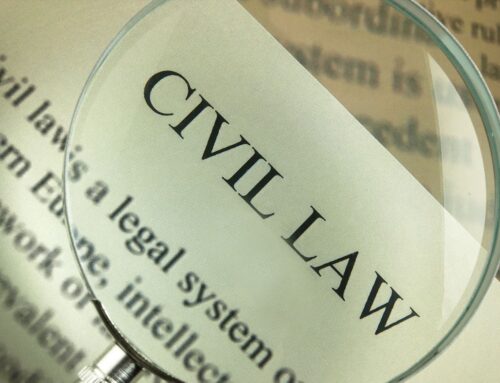We all engage in informal agreements from time to time. A parent strikes a deal with a child to pay $10 for mowing the lawn. You promise a nearby coworker to drive the commute to work one week, and your friend returns the favor the next. Most of us understand the give-and-take of these kinds of arrangements.
Formal Contracts Bind the Participants
In its simplest form, a contract is an agreement between two parties — individuals or businesses — that each will fulfill the promise made. A contract is a serious business because it carries the weight of the law.
In order for the agreement to be considered a contract, each party has to contribute something of measurable worth:
- Cash
- Performance of a service
- Material item, property or goods
This provides many possibilities. Only the first item, however, is unambiguous. Disputes may arise about how a service is carried out or the condition of an item sold.
Failure To Keep a Promise Causes a Breach of Contract
A breach of contract is also straightforward: Someone fails to fulfill a promised obligation. In the informal illustration of a child receiving $10 to mow the lawn, a breach results if the son or daughter plays video games all day instead of getting out the lawnmower. If the child takes care of mowing, but Mom or Dad says the $10 isn’t available because of unexpected car repairs, a breach also results.
Some Breaches Are More Serious Than Others
Although the concept of not keeping a commitment or promise is simple, sorting out the severity of the breach is anything but easy. In California law, a breach of contract is either a material breach or a non-material breach. A material breach, sometimes called a total breach, can occur when one of the parties does not carry out a duty at all or neglects to fulfill a critical part of the obligation. If a party completes the basic part of the promise but fails to meet a small detail in the contract, this may constitute a non-material breach.
In making this determination, the court considers the purpose of the contract and the effect the breach has on fulfilling this objective. For example, if an item or service misses the specified delivery date, the result may be either inconsequential or disastrous, depending on the circumstances.
Providing a commissioned piece of art a day late to a client who simply wants to display it and watch it appreciate in value is not likely to constitute a material breach. The customer’s investment is intact. Delivering a specialty-themed ice sculpture the day after the wedding reception date in the contract, however, results in a material breach since the event is over. No matter how amazing the sculpture, it becomes an expensive puddle of water without anyone to enjoy it.
Courts Can Award Damages for a Breach of Contract
California law takes the approach that a breach of contract remedy should restore the non-breaching party to the same position as if the contract was carried out as stated:
- General Damages: Damages you would expect to occur from a breach are general damages. If one party doesn’t provide the required compensation when the other party delivers the goods or services, the court can order the breaching party to pay up.
- Special Damages: Occasionally the court may award reparations for expenses one party incurs in expectation of the other party’s promise.
- Liquidated Damages: The contract may specify an amount of money that must be paid if an obligation is not fulfilled. These damages are usually binding unless the court deems them unreasonable.
- Special Performance: The court may order the defendant to fulfill the duty outlined in the contract, such as selling a unique property or historical item even if the owner decides to keep it.
California does not provide for any type of punitive damages to discipline the defendant in breach of contract cases.
A Breach of Contract Calls for Legal Assistance
If a business or individual is failing to carry out a signed contract with you, or someone is accusing you of breach of contract, call the Law Offices of Brent D. George at (805) 494-8400 for a free consultation.




